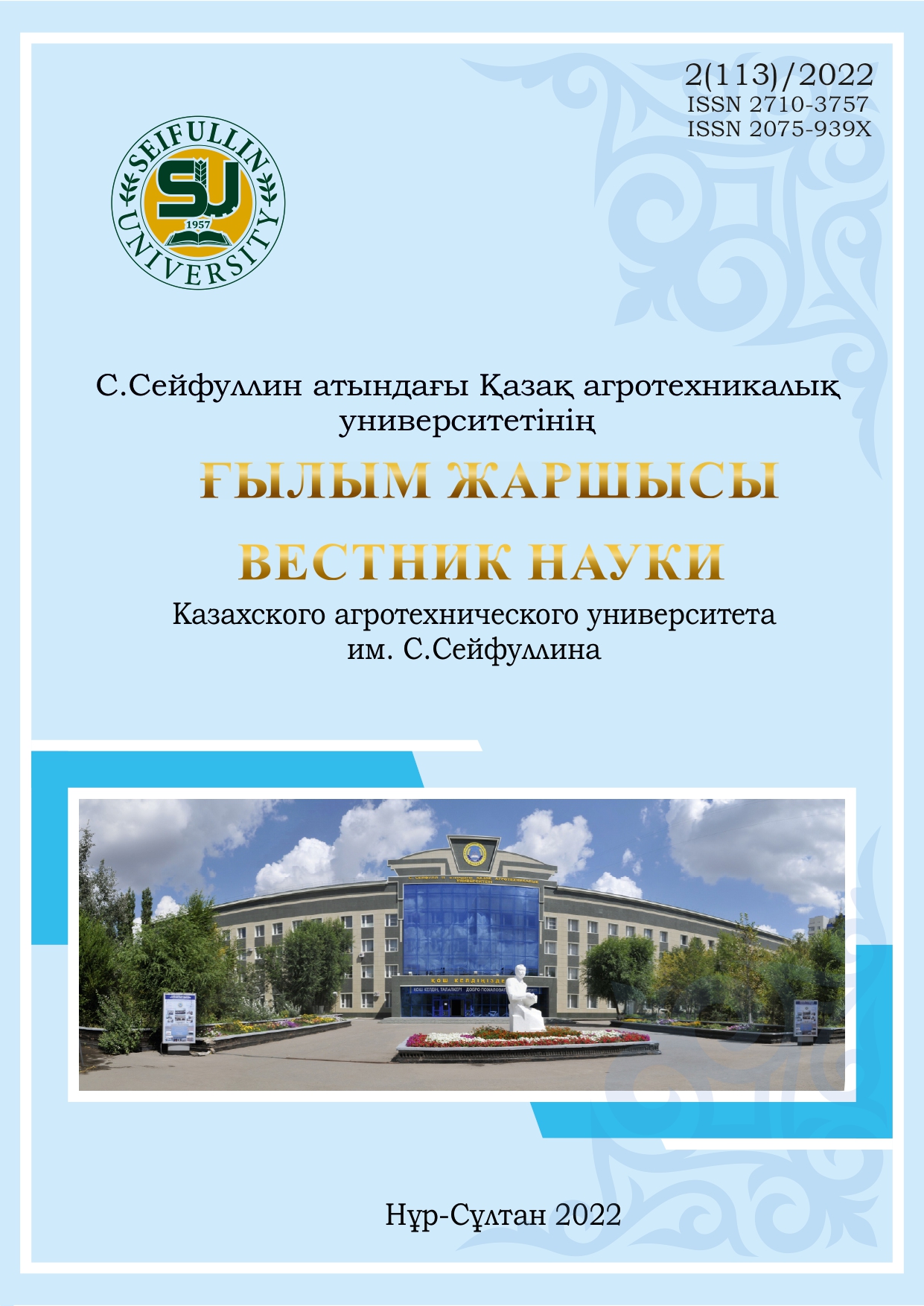ANTIBIOTIC RESISTANCE OF ESCHERICHIA COLI ISOLATES CONTAMINATING CHEESE
DOI:
https://doi.org/10.51452/kazatu.2022.2(113).1028Keywords:
cheese; Escherichia coli; contamination; antibiotics; resistance; Benzylpenicillin; BacitracinAbstract
The article presents the results of microbiological studies of contamination of cheese realized in retail chains with the species Escherichia coli. In 38 cheese samples produced by 11 enterprises of Akmola and East Kazakhstan regions, E.coli was detected in 18 samples. In the course of research, commercial Compact Dry plates (R-Biopharm AG, Germany) were used to isolate E.coli. Morphological and biochemical properties of 18 bacterial strains isolated from cheese samples were studied using standard microbiological methods.Resistance of found E.coli isolates to antibiotic drugs (bacitracin, streptomycin, levomecitin, benzylpenicillin, tetracycline, gentamicin, kanamycin, erythromycin, oxacillin, kanamycin) was studied by the disc-diffuse method. As a result of these studies, E.coli isolates from the Kazakhstan market’s cheese were resistant to Benzylpenicillin and Bacitracin antibiotics. Thus, widespread use of antimicrobials in agriculture and veterinary clinical practice leads to formation of resistant E.coli strains. The study of antibiotic resistance allows to identify the biological features of the microorganism and assess the risk of contamination of products with bacterial strains high resistance to antibiotics.

